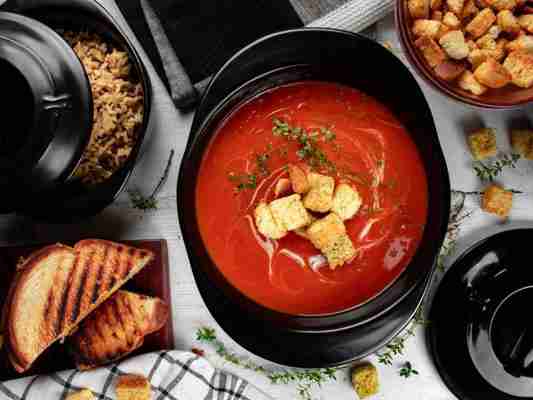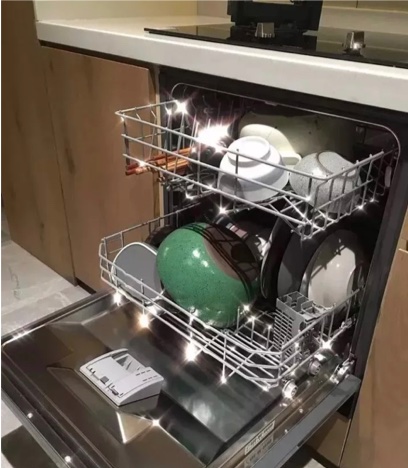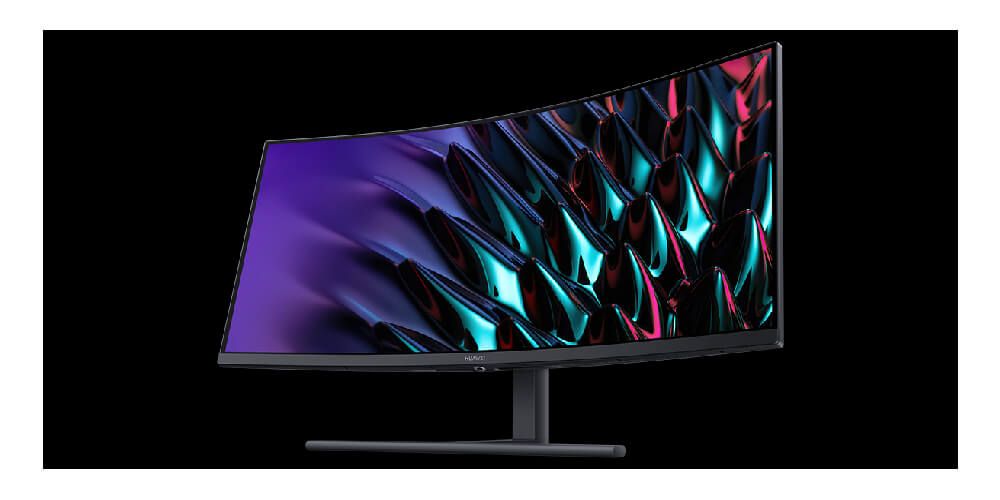*Affiliate disclaimer.

Since you’d never be caught dead with melamine in your cabinets (literally, and on style grounds alone, a capital crime), you don’t need to be told not to use it. What you do need to know? Your cookware is just as important as the food you choose to eat. There, we said it. And you have plenty of amazing options when it comes to choosing the safest non toxic cookware for your health. Still, it’s not the easiest to know which non toxic cookware choices are best for your cooking style and health concerns.
Ready to feel seen?
Our in-house, professionally trained chef, and editor-in-chief, Laura Klein, has thoroughly tested each of the brands we recommend here. In this annually updated guide, we cover tips on choosing the safest cookware for your needs and lifestyle, what's best to avoid with nonstick (we’re looking at you, PTFE and PFAS), the cookware brands we trust, and even give you a heads up on which products are best for you, the environment, and your pocketbook. Spoiler: We don’t recommend one-hit wonders and there’s a good reason why.
What’s the Safest Cookware for Your Health?
Let’s face it, most cookware is generally safe. But there are things to consider about each material when purchasing your cookware. And if you have serious concerns about cookware please consult your primary physician for advice.
Ceramic Coated Cookware
It's nonstick and doesn't leach chemicals into your food or off-gas at high temperatures. When treated well it can last for several years. The manufacturing process with this material is also more environmentally friendly as PFAS chemicals used in traditional nonstick production are under heavy scrutiny concerning public health. The catch, the low-end cheap brands wear out quickly, in as soon as three months. It's worth it to invest in a quality brand (see our picks).
Stainless steel
It's a workhorse for professional and home kitchens alike because it can last a lifetime and take a beating. Look for reputable brands that use food-grade stainless steel and employ third-party lab testing in compliance with Prop 65.
Cast Iron
An heirloom classic in the kitchen passed down from generation to generation, cast iron retains heat like nothing else and is a master at searing. While cooking with this material is generally safe, those susceptible to iron overload should consult with their primary care physician and use cast iron cookware with caution.
Carbon Steel
Relatively new to the American home chef, carbon steel has been used in France and professional kitchens for years because of its versatility. It has the heat retention of cast iron and the lighter weight of stainless steel. Also like cast iron, this material may leach iron into your food when used to cook with acidic ingredients. Carbon steel requires seasoning to build up natural nonstick properties. While acidic foods will strip this coating away, the pans can be reseasoned as needed. Overall, however, it’s generally safe.
Pure Ceramic
It might be the safest cookware out there, this type of cookware is made with just one material – ceramic. Best for low and slow cooking, another bonus to using ceramic is its low carbon footprint.
Our Top Non Toxic Cookware Picks for the Healthy Home Chef
What You Need to Know About Non-Stick Cookware Labels
Since you’d rather spend your time enjoying the rewards of a well-cooked meal than elbow deep in a serious scrub session, nonstick probably seems like the way to go. But conventional nonstick cookware can release toxic fumes when overheated. Now that’s not appetizing.
The processing used during the production of nonstick pots and pans pollutes our water supply and has been linked to testicular and kidney cancer, infertility, liver damage, and thyroid disease. No thanks.
As with other “clean” or “green” products, claims can be misleading when it comes to cookware. It’s common to see "PTFE-free", "PFOA-free", and "made without PFOA” on product labels, but you can’t always trust these claims at face value. For instance, some brands rename their PTFE coatings with fancy brand names while using the “PFOA-free” label.
To avoid this not-so-appetizing material, it’s important to know how to decipher nonstick and non toxic cookware jargon.
PFAS:
A synthetic chemical used during the production process of PTFE coatings (aka Teflon) that includes PFOA, PFOS, and GenX, PFAS comes with concerns for human health and environmental contamination. Both PFOA (phased out) and Gen X (currently in use), have been used to produce PTFE nonstick coatings commonly used in cookware.
PFOA:
Also known as C8, PFOA is a type of PFAS chemical produced and used in products that resist heat, oil, stains, grease, and water, as well as stain-resistant carpets, fabrics, and PTFE based nonstick cookware. After decades of use in the U.S., chemical producers such as Dupont and 3M phased PFOA out due to public health concerns that were kept hidden from the public until a class action lawsuit brought internal documents to the attention of the EPA and the general public.
Gen X:
Another PFAS class of synthetic chemicals, Gen X is a trade name used to make PTFE nonstick coatings and is a direct replacement for PFOA, but has an unproven safety profile. According to a draft toxicity report by the EPA, there is a potential risk of exposure to GenX through drinking water, air, and consuming food wrapped in PFAS containing products. Emerging data from animal studies point to health effects in the kidney, blood, immune system, developing fetus, and especially in the liver following oral exposure. The data is also suggestive of cancer.
PTFE:
Originally discovered in 1938 by DuPont, PTFE is best known as Teflon (Dupont’s brand name). While PTFE coatings in cookware are generally safe if used as intended, overheating a PTFE pan can result in off-gassing that may lead to flu-like symptoms called polymer fume fever. These fumes are potent enough to hospitalize humans and kill pet birds.
When cheap nonstick coatings wear out, the exposed core is typically made from a reactive metal (e.g. aluminum or copper) and may leach heavy metals (e.g. aluminum, copper, lead, or cadmium). Not to mention that nonstick coating can flake into your food.
The bottom line? PFOA has been phased out for years, so we consider this label as the bare minimum. Instead look for nonstick coatings (see our ceramic nonstick recs below) that are made without PFAS, which encompasses all of the bad stuff associated with PTFE.
The Organic Authority Approved badge for the Clean Cookware brands we trust.
The 6 Safe Cookware Brands We Trust
Wondering how to get the best of both worlds when it comes to cooking safely without a massive amount of cleanup? We did too! That’s why we spent hundreds of hours (seriously) poring over research from the Environmental Working Group (EWG), Food and Drug Administration (FDA), Environmental Protection Agency (EPA), and PubMed, while consulting experts along the way.
The result? Our tested and research-backed collection of cookware recommendations to meet every need, lifestyle, skill level, and frequency of cooking. Our guide features only cookware that we have personally tested from brands that are transparent about its production practices and the safety of its products. Each one has earned the "OA Approved Clean Cookware" seal of approval (what's behind the OA Approved seal? Read about it here).
1. Demeyere
7-ply Stainless Steel.
Easy to Clean
Retains Silver-White Shine for Years
Unique Electrochemical Surface Treatment (Not a Coating!)
Chef Favorite
OA Pick: The 1.75 quart saucier
Excellent Heat Conduction
"I use the saucier for so many things, like making weeknight tomato sauces, rice, quinoa, melting chocolate, and caramelizing onions." Laura Klein
Belgian family-run Demeyere has been a benchmark in stainless steel cookware for over a century. Outstanding feature? Silvinox technology – a unique electrochemical surface treatment (not a coating!) that enriches and purifies the stainless steel surface, making it easier to clean and allowing it to retain its shine and silver-white color for years. Proprietary flat bottom technology keeps the pans from warping at high temperatures. And since this cookware line is a favorite amongst chefs in professional kitchens, it's no surprise that home cooks love the pieces too.
Klein loves these pans for their excellent heat conduction and easy-to-clean surface. She tested the Atlantis, made with seven layers of metal, and the Industry 5, with five layers and deemed both to have excellent conduction, eliminating hot spots. These stainless steel pans have superior food release, making them easier to clean than traditional stainless steel pans.
"The Atlantis comes with a little more weight with the two extra layers, but the superior heat conduction retention, food release, and overall design and feel of the pan in my opinion, is worth it."
Caraway Set with magnetic rack for storage.
2. Caraway
Ceramic-Coated Nonstick Surface
Beautiful Design
PFAS-Free
Pan and Lid Storage Solution Included With the Set
Cork Trivets Included With the Set
Oven Safe up to 550°F
“It boasts great heat retention and some heft, which translates to better heat distribution without hot spots, which most traditional lightweight nonstick pans don’t have. And the ceramic-coated nonstick surface has lasted over a year.” Laura Klein
Simply put, Caraway cookware is any home cook’s dream, particularly if you want the ease of nonstick pans. (Please note: If searing veg and consciously raised meat is more your thing, you’ll love our stainless, carbon steel, and cast iron picks). Gorgeously designed, this ceramic cookware is ideal for the health and design conscious cook. All the brilliant cooking advantages without the chemicals you are looking to avoid. And did we mention these pieces are easy to clean? Yeah, we thought you’d like that.
Made without PFAS (including Gen X), there’s no need to worry that this cookware choice is detrimental to our environment or your health. Added bonus – magnetic pan racks that house each pot for sideways access, and canvas lid holders for kitchen cabinet doors to better organize your shelves. The set even comes with two cork trivets, which we love! Form meets function perfection. Wondering how this brand holds up after months of use? Read our profile and review of Caraway.
“When I used regular non-stick pans, it would disturb me when I saw that flakes of the surface had scraped off into my food. Not only does Caraway's surface not flake, there are no chemicals. Win-win!” Chelsea Mae Plummer, Founder of
3. Made In Cookware
Stainless and Carbon Steel Cookware
Professional Quality
Michelin Star Chef-Approved
High Heat Capacity
Extremely durable
Safe, Non Toxic Cookware for the Home Chef
“I have used the Made In Starter Cookware almost daily for about two years in both professional and personal settings, and the set still performs as well as new. I like Made In's Stainless Steel cookware as it has a nice-to-hold and cool-to-touch handle, and their cookware is well-engineered for even heating across the cooking surface. I think the Starter Set is an excellent set for anyone wanting to invest in a quality cookware set without breaking the bank.” Jessica Randhawa, Head Chef and Owner of The Forked Spoon
This family-owned brand is 100+ years in the making, and we’re blown away by the superior quality of Made In 5-ply stainless steel and carbon steel pans. Its cookware possesses such high quality that 3-Michelin star chef, Grant Achatz, not only uses Made In at Alinea, he’s also an investor and member of Made In’s advisory board.
Boasting high heat capacity, heat control, and even cooking capabilities, think of Made In carbon steel as if cast iron and stainless steel had a baby. Perfect for blistering greens and searing your favorite grass-fed piece of meat to add that extra caramelization of flavor and texture. And the natural nonstick properties that develop as the pan becomes seasoned with use make clean-up a breeze. You’ll also want the 5-ply food-grade stainless steel pieces to use as kitchen staples. Not only is stainless steel safe and extremely durable, but the company also recycles unused metal. That’s right, anything that can't be used is up-cycled into tailpipes for cars and damaged and returned merchandise is sold to restaurants or donated to ensure nothing is wasted. Read our profile for a more in-depth look at Made In Cookware.
Staub's Enameled Cast Iron. Staub
4. Staub
Time-Tested Enamel Cast-Iron Cookware Made in France
Phenomenal Heat Retention
Matte Black Finish
Extremely Durable
Doubles as Gorgeous Serving Dish
No Seasoning Necessary
“I always recommend Staub pots and pans because when you buy them you know you’re getting quality. They are very good at keeping moisture inside the pot during a long braise, which means you’ll have a more flavourful stew. These French-made pots are heavy, sturdy, and made to last a lifetime in your kitchen.” Devan Cameron, Chef and Owner of Braised & Deglazed
For nearly five decades, Staub has been renowned as a French culinary specialty in enameled cast iron. Originally developed in part with famed French chef Paul Bocuse, this heavy-duty cookware boasts both the phenomenal heat retention of cast iron and the acid-resistant, slick surface of glass enamel studded with quartz crystals that stands up even to metal utensils. It’s no wonder the pros love to use these pieces not only as cookware but as serving dishes, as well. The heavy-duty, durable cookware stands the test of time (no matter how long you leave it soaking in the sink). Perfectly suited for everything from braises to bread, a Staub Dutch Oven will only get more seasoned the more you use it.
A special callout to Staub's innovative lid design: A super snug fit to trap condensation, with spikes all along the inner surface to ensure moisture drips back into the dish during slow cooks, and enough steam retention to make your sourdough bread tender and moist with a sublimely crisp crust.
Klein sat down with Joanna Rosenberg from Staub for an Instagram live conversation to see what makes this brand stand out from the rest.
5. GreenPan
Industry Leader for Innovation in Non Toxic Nonstick Cookware
Signature Thermolon Ceramic Nonstick Coating
No PFAS, PFOA, Lead, or Cadmium
Comfort Grip Handles
Clear, Tempered Glass Lids
“In all my years of studying healthy cookware, GreenPan has been the only brand that has well and truly exceeded my expectations with their world-renowned cooking pans. The company uses Thermolon technology, which is further aided by the non-toxic ceramic coating. It helps buyers make healthier meals, and cleaning up has never been easier. I have been using their non-stick pan collection for years now and am fully satisfied and happy with my investment.” Melissa Collins, Partnership Manager at Perfect Brew
Each piece in the GreenPan collection features its signature Thermolon ceramic coating, the original non toxic alternative to traditional nonstick and the first to be free from plastic, PFAS, PFOA, lead, or cadmium. No worries that it will ever release toxic fumes, even if overheated. The collection’s ergonomic stainless steel handles are contoured for a comfortable grip and the tempered glass lids give you a clear view of what’s cooking.
GreenPan has also taken strides to make its production methods as green as possible, emitting 60 percent less CO2 during the curing phase of the nonstick coating as compared to traditional coating. They also utilize upcycled stainless steel and aluminum whenever possible.
Klein recommends GreenPan's higher end lines, the textured SearSmart and the Reserve, finding they last the longest. What Klein loves about GreenPan non toxic, nonstick surface is that it tolerates heavy metal utensils, which most nonstick cookware on the market does not.
"I’ve tried a lot of non toxic, nonstick lines, and most start to lose their slickness in as little as three months. I then end up recycling them in six and have to buy another set. It's a waste of time and money. After about a year, these two collections have proven to stand the test of time." Laura Klein
6. Xtrema
Our Pick: Safest Cookware
100% Pure Ceramic
Meets a Variety of Cooking & Baking Needs
FDA Approved
Meets California Prop 65 standards
Comes With a 10-year Warranty
Made of pure ceramic to lock in total heat, Xtrema allows you to cook on lower and slower settings. The only pure ceramic cookware on the market that can go on the stovetop, in the oven, and in the microwave, making it the perfect vessel for one-pot recipes, as well as braising, boiling, and baking.
Unlike PTFE nonstick cookware, Xtrema is PFAS and PFOA free, but without the same nonstick qualities. To avoid using more fats than you’d like for good food release, we recommend getting specific pieces from Xtrema that are ideal one-pot-wonders for the oven, soups, and slow braising/cooking recipes. These pieces complement the ceramic nonstick, stainless steel, and blue carbon steel options we’ve mentioned in this guide. Xtrema is FDA-approved and meets California Prop 65 standards, meaning it’s free of more than 800 compounds that may cause cancer, birth defects, or reproductive harm. All products in this line come with a 10-year warranty and are oven, microwave, grill, and dishwasher safe.
If you are health conscious and deal with chemical sensitivities, or just hyper-vigilant about what you eat and what you cook with, pure ceramic belongs in your kitchen. Read our Xtrema profile to learn more about the brand.
Choosing the Right Safe, Non Toxic Cookware for You
Where to start? We recommend beginning with a base set and adding from there. And to make things even easier, follow our chart to select the perfect pieces for your safe cookware collection.
Hey, not everyone is a chef, and we get that. But almost everyone does some cooking on the regular and you want it to be as safe as possible. When selecting pieces from our product recommendations above, take your cooking skills, frequency, and lifestyle into consideration before you buy.
Do you prefer to sear or braise foods? If you like to use high heat cooking techniques to add extra texture and flavor, we recommend one, two, or even a set of Made In’s carbon or stainless steel.
Are you an experienced home chef who loves to entertain with elaborate meals? If so, we say start with a foundational set of cookware like Demeyere’s, Made In’s Stainless Steel, or a Caraway set and fill in from there.
Or are you a get-it-done as simply and easily as possible type of cook? If you’re into minimal prep, cook, and clean time we definitely recommend Caraway for it’s non toxic, nonstick ceramic coated surface.
For the fast track to cleaner cooking pastures, just take our personalized cookware quiz to learn which clean cooking items will set you up for cheffing success. (Promise it’s quick and easy.)
Brands and Products We Don't Recommend and Why
Yes, we previously recommended PTFE-free nonstick pans from Ecolution's Bliss Line, Ozeri Green Earth, GreenLife Soft Grip, and Cuisinart's Green Gourmet 12-piece set. But we’re walking that back and for good reason. These pans simply don't hold up to our standards in non toxic cookware for durability and ability to handle high heat.
We also have thoughts on popular brands that other sites have recommended. Lodge skillets are a good value, but we prefer Staub for its superior performance. Staub comes pre-seasoned with a crystal-based black matte enamel coating, which means you don’t have to worry about re-seasoning the pan or rusting, and it also reduces the probability of iron leaching when cooking acidic foods. Staub is easier to clean and wears much better over the long term, and (this is a big deal) stands up to metal utensils (unlike others, like Le Creuset). If you want to learn more about Staub, see our brand profile. However, if budget is a big consideration for you, consider the Lodge cast iron skillet, it is an excellent value option.
Many of Cuisinart and All-Clad’s stainless steel product lines are 3-ply and don’t perform as well with regard to heat conduction and even heating as Made In’s 5-ply, or Demeyere’s 5 or 7-ply. (Demeyere is easiest to clean and stays shiny with its Silvinox finish).
The Always Pan seems to be a popular all-in-one choice. But around here, we’re just not fans of gimmicky one-hit wonders that have a short shelf life and end up in the landfill. Not green and costs you more money in the long run. Products like these tend to produce average or below average results because they simply try to do too much. Like many ceramic nonstick picks, it seems the consensus is that this pan doesn’t last more than a few months, a year if you’re lucky. If you must have a nonstick pan and are willing to treat it properly, we can confirm that our GreenPan and Caraway picks will last much longer, but know that all nonstick pans wear out eventually.
Cookware Safety FAQ Summary
Still in the dark on which safe cookware is right for you? Looking for a quick and easy answer to your *ahem* burning questions? Check our As to your Qs below. As always, if you have concerns consult your primary care physician.
Is aluminum cookware safe to cook with?
While research regarding the detrimental effects of cooking with aluminum is inconclusive, there are concerns over aluminum leaching into food when in contact with acidic foods (tomatoes, vinegar), though leaching is not a concern for aluminum-based cookware that is coated or treated (anodized). It’s best to avoid aluminum cookware that is cheaply made (with scrap metal, for example, as reported in a study published in Science Daily) or secondhand cookware, and stick with reputable brands that follow safe manufacturing practices.
Is copper safe to cook with?
Copper is considered a heavy metal and is highly reactive to acidic foods, like tomatoes and vinegar. Copper cookware is typically lined with stainless steel to prevent leaching, but there is concern that individuals with nickel sensitivity (about 10% of the population, as reported by Cleveland Clinic) should avoid stainless steel. For those without a nickel allergy, it’s best to choose reputable brands that use food grade 18/10 stainless steel or higher. We like Made In’s copper cookware.
Is stainless steel safe to cook with?
While stainless steel is generally safe to cook with, there is some concern over nickel leaching when in contact with acidic foods (tomatoes, vinegar), a concern for individuals with nickel sensitivity (about 10% of the population, as reported by Cleveland Clinic). Choose reputable brands who use food grade stainless steel. We like Demeyere as they follow good manufacturing practices and use 18/10 stainless steel that undergoes a proprietary treatment, making the pans more resistant to acidic foods.
Is enameled cookware safe?
Enamelware is often associated with coated cast iron. Look for brands that conduct 3rd party lab tests to ensure Prop 65 compliance for cadmium and lead. We like Staub for quality enameled cast iron pieces. Read more about Staub here.
Is carbon steel safe to cook with?
The carbon steel usually comes as uncoated material (unless it comes pre-seasoned). It's a mix of cast iron and stainless steel. It can handle high cooking temperatures without breaking down or off-gassing toxic fumes (unlike PTFE-based nonstick coatings). Similar to uncoated cast iron, avoid long simmering meals with acidic ingredients (tomatoes, vinegar) as this may strip the natural seasoning and leach trace amounts of iron into your food. Carbon steel usually requires seasoning to build up natural nonstick properties.
Is cooking with cast iron safe?
Cast iron is generally a safe cooking medium. For long simmering recipes, avoid acidic ingredients (tomatoes, vinegar) as they may strip any natural seasoning that has built up. When in contact with acidic foods, trace amounts of iron may also leach into your food, which may not be healthy for individuals susceptible to iron overload. We prefer Staub as an enamel coated cast iron pick that is also safe and reduces the risk of iron leaching.
Is ceramic nonstick coated cookware safe?
Ceramic nonstick coated cookware is a non toxic and safe option. It is made without PFAS chemicals, which is used in the production process for traditional PTFE-based cookware. We like Caraway for their thoughtful design and their commitment to good manufacturing practices and 3rd party testing. We also like GreenPan for their innovation and environmental stewardship. Of all the ceramic pans we’ve tested, GreenPan lasts the longest.
Is cooking with Traditional (PTFE) Non Stick Cookware Safe?
Cooking with PTFE-based nonstick cookware is generally considered safe. However, overheating can lead to toxic fumes that lead to flu-like symptoms and are strong enough to kill pet birds. The main concern with PTFE-based nonstick cookware has to do with the industry’s long history of litigation with regard to localized PFAS contamination (a chemical used during production) in local waterways - a serious public health concern. While it is possible for a company to make safe PTFE-based nonstick cookware, we have not encountered a cookware brand that can answer our questions with regard to their wastewater mitigation practices. For this reason, we prefer ceramic nonstick cookware as it eliminates the need for PFAS chemicals altogether.
We frequently add or remove products based on our research and testing. Please let us know in the comments below of any brands you'd like us to look into or if you'd like to share your own experiences with the brands you've tried.
Related on Organic Authority
5 Non-Toxic Bakeware Materials to Consider & Our top Brand Picks
How the FDA has Regulated PFAS Chemicals the last 40+ Years
Stone, Steel, or Cast-Iron: Which is Best for Homemade Pizza?
*Note! This article contains affiliate links that are independently sourced and vetted by our editorial team which we may earn a commission on. This helps us reduce the number of ads we serve on Organic Authority and help deliver you a better user experience. We are here to help you navigate the overwhelming world of consumer products to source and uncover thoughtfully made, conscious clean products.












